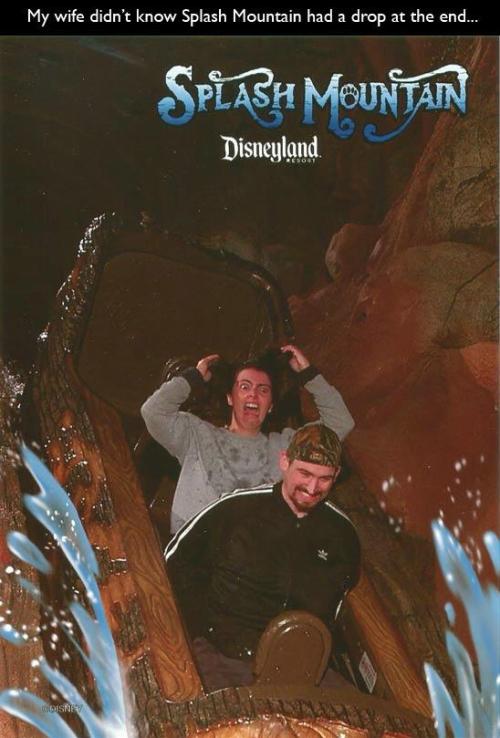Tips For Writing Flawed But Lovable Characters.
Tips for writing flawed but lovable characters.
Flawed characters are the ones we root for, cry over, and remember long after the story ends. But creating a character who’s both imperfect and likable can feel like a tightrope walk.
1. Flaws That Stem From Their Strengths
When a character’s greatest strength is also their Achilles' heel, it creates depth.
Strength: Fiercely loyal.
Flaw: Blind to betrayal or willing to go to dangerous extremes for loved ones.
“She’d burn the whole world down to save her sister—even if it killed her.”
2. Let Their Flaws Cause Problems
Flaws should have consequences—messy, believable ones.
Flaw: Impatience.
Result: They rush into action, ruining carefully laid plans.
“I thought I could handle it myself,” he muttered, staring at the smoking wreckage. “Guess not.”
3. Show Self-Awareness—or Lack Thereof
Characters who know they’re flawed (but struggle to change) are relatable. Characters who don’t realize their flaws can create dramatic tension.
A self-aware flaw: “I know I talk too much. It’s just… silence makes me feel like I’m disappearing.” A blind spot: “What do you mean I always have to be right? I’m just better at solving problems than most people!”
4. Give Them Redeeming Traits
A mix of good and bad keeps characters balanced.
Flaw: They’re manipulative.
Redeeming Trait: They use it to protect vulnerable people.
“Yes, I lied to get him to trust me. But he would’ve died otherwise.”
Readers are more forgiving of flaws when they see the bigger picture.
5. Let Them Grow—But Slowly
Instant redemption feels cheap. Characters should stumble, fail, and backslide before they change.
Early in the story: “I don’t need anyone. I’ve got this.”
Midpoint: “Okay, fine. Maybe I could use some help. But don’t get used to it.”
End: “Thank you. For everything.”
The gradual arc makes their growth feel earned.
6. Make Them Relatable, Not Perfect
Readers connect with characters who feel human—messy emotions, bad decisions, and all.
A bad decision: Skipping their best friend’s wedding because they’re jealous of their happiness.
A messy emotion: Feeling guilty afterward but doubling down to justify their actions.
A vulnerable moment: Finally apologizing, unsure if they’ll be forgiven.
7. Use Humor as a Balancing Act
Humor softens even the most prickly characters.
Flaw: Cynicism.
Humorous side: Making snarky, self-deprecating remarks that reveal their softer side.
“Love? No thanks. I’m allergic to heartbreak—and flowers.”
8. Avoid Overdoing the Flaws
Too many flaws can make a character feel unlikable or overburdened.
Instead of: A character who’s selfish, cruel, cowardly, and rude.
Try: A character who’s selfish but occasionally shows surprising generosity.
“Don’t tell anyone I helped you. I have a reputation to maintain.”
9. Let Them Be Vulnerable
Vulnerability adds layers and makes flaws understandable.
Flaw: They’re cold and distant.
Vulnerability: They’ve been hurt before and are terrified of getting close to anyone again.
“It’s easier this way. If I don’t care about you, then you can’t leave me.”
10. Make Their Flaws Integral to the Plot
When flaws directly impact the story, they feel purposeful rather than tacked on.
Flaw: Their arrogance alienates the people they need.
Plot Impact: When their plan fails, they’re left scrambling because no one will help them.
Flawed but lovable characters are the backbone of compelling stories. They remind us that imperfection is human—and that growth is possible.
More Posts from Totallynotobsessedspades and Others
Co-workers: you're so anti-social, always in your little world.
Me: *sitting in the corner, disassociating while writing my book in my head*

20 Emotional Wounds in Fiction That Make Readers Root for the Character
Abandonment: Characters who have been abandoned by loved ones or caregivers can evoke sympathy from readers.
Betrayal: Being betrayed by someone close can create deep emotional wounds that make readers empathize with the character.
Loss of a Loved One: Whether through death or separation, the loss of a loved one can be a powerful emotional wound.
Rejection: Characters who experience rejection, whether in relationships or by society, can be relatable and evoke empathy.
Abuse: Physical, emotional, or psychological abuse can create complex wounds that shape a character's personality and behavior.
Neglect: Characters who have been neglected, especially in childhood, can evoke sympathy from readers.
Failure: Experiencing a significant failure or loss can create emotional wounds that make characters more relatable.
Guilt: Characters who carry guilt for past actions or decisions can be compelling and evoke empathy from readers.
Shame: Feelings of shame can create internal conflict and make characters more relatable and sympathetic.
Injustice: Characters who have experienced injustice or unfair treatment can evoke strong emotions from readers.
Trauma: Characters who have experienced traumatic events, such as war or natural disasters, can be sympathetic and relatable.
Loneliness: Characters who feel lonely or isolated can evoke empathy from readers who have experienced similar feelings.
Fear: Characters who face their fears or struggle with phobias can be relatable and evoke empathy from readers.
Self-doubt: Characters who struggle with self-doubt or low self-esteem can be relatable and evoke sympathy.
Identity Crisis: Characters who are grappling with questions of identity or struggling to find their place in the world can be sympathetic.
Addiction: Characters who struggle with addiction can be complex and evoke empathy from readers.
Betrayal of Trust: Characters who have had their trust betrayed can be sympathetic and relatable.
Unrequited Love: Characters who experience unrequited love can be sympathetic and evoke empathy from readers.
Isolation: Characters who feel isolated or disconnected from others can be relatable and evoke sympathy.
Fear of Failure: Characters who struggle with a fear of failure can be relatable and evoke empathy from readers.



Drawing bases & pose references pt 63 🫶
3 extra drawings for patrons!
^ fish in a birdcage mention ‼️
francis forever (mitski)
in the same boat (the lightning thief musical)
open arms (epic)
safe and sound (Taylor swift)
wouldn’t you like (epic)
bourgeoisieses (Conan gray)
my grand plan (the lightning thief musical)
flowers (hadestown)
i’m not that girl (wicked)
a loving feeling (mitski)
yeahhh this is a pretty accurate representation of my music taste
@writer-of-random-things (third notif just for funsies) @rosy-cozy-radio and anyone else!
tagged by @agentofchaosx thank uuuu!!
Rules: Shuffle your "On Repeat" playlist and post the first 10 songs, then tag 10 friends!
Rush - Troye Sivan
I Think We're Alone Now - Tiffany
Pink Pony Club - Chappell Roan
Good Luck, Babe! - Chappell Roan
Sharks - Imagine Dragons
Talk Fast - 5 Seconds of Summer
De Shelby (Part 2) - Hozier
Guess - Charli xcx, Billie Eilish
so american - Olivia Rodrigo
Where Did The Party Go - Fall Out Boy
@dontknowanythingohwell @rinoune42 @thecommonmold @froginabogg @thenerdybard @soupdrinkinglincoln @snailsandstrawberries @absolutefilthimsosorry @denizoid @thatskeletonbitch if you guys want, or not tagged people please join in if you want to do it!
free resources to write a novel in 2024
hello hello! it's me, rach!
as the new year approaches, many of us set goals and resolutions - myself included. one of my goals for 2024 is to write a novel (I've been procrastinating on this for quite a long time now). i assume that some of you might have the same goal, that's why I'm writing this post today.
over 2023 i've been releasing some freebies for authors just like me, so I thought I could compile my favorites in this post. hope you find this useful :)
1) the writer's workbook

this workbook has over 60 exercises to help you develop characters, scenarios, etc. if you're ever stuck, I'm pretty sure this workbook will be your best friend.
2) author's corner (notion template)

this is the most downloaded freebie in my shop! it is a notion dashboard with everything you need to organize your writing and has some templates included (like scrivener)!!
3) another notion template

this one has two themes you can choose from: cottage-core and dark academia. they're very similar to the previous template, but this one is more recent and I added some new features. feel free to explore both and pick the one you like the most.
4) the author's journal

this is a cute printable with 20 pages that will help you stay on track and manage your social media accounts as a writer who shares their work online. you can also register what you're currently writing and your personal research and resources.
5) plan your book printable

this is a 6-page printable for you to fill out and plan your book easily and effectively.
6) excel sheet to organize tasks & word-count

this is a simple excel sheet, but it is very effective for keeping track of your tasks & word-count of your novels. also, it is 100% customizable to your liking!
that's all for now! feel free to explore my gumroad shop where I have plenty of freebies to grab! also, don't forget to subscribe so that you never miss any opportunity to get a goodie for free :)
hope this post was useful!
have a nice day,
rach
i was reading my writing so far and noticed that it's kind of hasty? it feels like the scenes pass too quickly and characters act and make decisions too fast. i'm kind of a pantser and still on my first draft so there's definitely gonna be a lot of revisions but i was wondering if you'd have any advise on how to make the time in my story pass more naturally as opposed to stuff happening kind of rapid-fire. my story is high fantasy if that's relevant. i hope i worded this in a way that is understandable.
(also thanks so much for running this blog, it's very helpful)
Scenes Feel Rushed (Scene Elements/Structure)
The thing about scene pacing is it has nothing to do with time. It isn't about how long it takes the reader to read the scene, the amount of time that elapses in the story during the scene, or how fast/slow these events play out. Here's why:
-- readers read at different speeds -- scenes can occur over a period of minutes or days in your story -- scenes can be fast-paced or slow-paced depending on need
So, if your scenes are feeling rushed, it's not because you need figure out how to make the time pass more naturally. It's because not enough is happening in your scene. In other words, you don't have a good grasp on what scenes are supposed to accomplish and how to structure them.
Scene Elements
Your scene should include the following elements:
1 - A Writer Understood Purpose - First and foremost, as the writer, you should understand the purpose (aka "goal") of the scene in terms of what it accomplishes in the bigger story. Does it advance the plot in some way? Does it develop the protagonist and/or other main characters in a way that is crucial to the plot? Does it develop the setting, back story, or otherwise give the reader information they need in order to understand the story?
2 - Clearly Established Setting - Imagine if you went to see a play, but the stage had no backdrop, no scenery, no props. It was just a big empty stage with actors on it. Imagine how much you would lose without understanding where this scene was taking place. It works the same way in fiction, which is why it's important to start a scene by giving the reader some idea of where it's taking place. Using sensory and emotional description, you can give the reader a good image of the scenery and what it means to the POV character/s and the scene that's about to unfold.
3 - Relevant Characters - A scene can't play out without its requisite characters, but "requisite" is the keyword there: only characters who are relevant to the purpose of the scene--as well as "background extras" who are there to fill small-but-necessary roles and lend to an authentic setting... such as the teacher and other students in a classroom scene, or other patrons and servers in a restaurant scene. However, don't include main or secondary characters just to include them. They should be there because they need to be or because it makes sense for them to be there.
4 - Scene Conflict - Just as every story needs a conflict (an over-arching problem that must be resolved), so does every scene. Scene conflict can be internal (within the character's heart and mind) or external (in the character's environment). The purpose of the scene is to either resolve the scene conflict or propel it toward a future scene.
5 - Clarified Motivation and Goal - Because you understand the purpose of the scene (what you're trying to accomplish in the scene as the writer) and because you know the conflict/problem that must be resolved, it's important to clarify your character's scene goal (what they're trying to do in order to resolve the scene's problem, or their attempt to resolve it) and what is motivating them to resolve this conflict. Why is it important to them?
6 - Relative Balance of Exposition, Action, and Dialogue - Most scenes should have a relative balance of exposition (narrator explaining things), action (things happening), and dialogue (characters talking.) However, there are sometimes scenes that will lean toward more exposition, more action, or more dialogue. It just depends on the needs of the scene, but generally-speaking, you want a reasonably good balance. If there's no story-centric reason 90% of the scene needs to be dialogue, you need to make sure you balance things out a little more between dialogue, action, and exposition.
7 - Exploration of Emotion - Even in stories that are fully plot-driven, there needs to be an exploration of the emotions being felt by the characters in the scene, and an attempt by the writer to translate those emotions to the reader. The movie Jurassic Park, for example, was pretty fully plot-driven... it wasn't really about exploring internal conflicts or character arcs... but the emotion felt by the characters at throughout the story went a long way in making the reader feel things alongside them. Who can forget Dr. Grant seeing the dinosaurs for the first time:

Or Lex trembling when she saw the raptor in the visitor's center:

By illustrating character emotion using external cues (body language, facial expressions, gestures) and internal cues (sensations like heart pounding, processing what emotions are being felt and what it means), and by exploring how these emotions relate to the plot (and character arc, if there is one), we can create a much deeper sense of what's happening in the scene and why it matters.
Scene Structure
Scenes, like plot, have their own structure. Just as with plot structure, you can vary your scene's structure according to the needs of your scene, but generally speaking it will look like this:
Beginning - hook and setting establishment
Conflict Development - introduce or reiterate the scene conflict; clarify character motivation, goal, and what's at stake. Introduce the obstacles or challenges that raise the stakes or make it more difficult for the character to achieve their scene goal
Climax - The conflict reaches its peak... the character attempts to resolve the scene conflict for good, or at least temporarily. Or, at the very least, something significant occurs
Resolution/Denouement - The scene conflict is either resolved or it's set aside to be dealt with later. The character reflects on what happened, what it means, and what's next
Transition to Next Scene - We usually want to end a scene with some hint of what the next scene will be to create a smooth transition to the next scene. This could be a statement of time, like, "In another week, Roland would return from Bruges and she could finally talk to him about what was going on." Or, it can be a cliffhanger, like, "But it wasn't Bernard and Cleo who got out of the taxi... it was Roland and Cleo. But Roland was supposed to be two-thousand miles away in Bruges..." Or, it can be an establishment of what comes next. "Whatever Roland was up to, she'd have to wait until tomorrow to snoop around and find out more."
By making sure your scene includes the proper elements and generally follows a basic scene structure, you can ensure that there's enough happening in the scene to keep it from playing out too quickly.
•••••••••••••••••••••••••••••••••
I’ve been writing seriously for over 30 years and love to share what I’ve learned. Have a writing question? My inbox is always open!
♦ Questions that violate my ask policies will be deleted! ♦ Please see my master list of top posts before asking ♦ Learn more about WQA here
ᴛɪᴘꜱ ꜰᴏʀ ᴡʀɪᴛᴇʀꜱ [ꜰʀᴏᴍ ᴀ ᴡʀɪᴛᴇʀ]
don't let your skill in writing deter you. publishers look for the storyline, not always excellent writing. many of the greatest books came from mediocre writers—and also excellent and terrible ones.
keep writing even when it sucks. you don't know how to write this battle scene yet? skip ahead. write [battle scene here] and continue. in the end, you'll still have a book—and you can fill in the blanks later.
find your motivation. whether it's constantly updating That One Friend or posting your progress, motivation is key.
write everything down. everything. you had the perfect plot appear to you in a dream? scribble down everything you can remember as so as you can. I like to keep cue cards on my nightstand just in case.
play with words. titles, sentences, whatever. a lot of it will probably change either way, so this is the perfect opportunity to try out a new turn of phrase—or move along on one you're not quite sure clicks yet.
explain why, don't tell me. if something is the most beautiful thing a character's ever laid eyes on, describe it—don't just say "it's beautiful".
ask for critique. you will always be partial to your writing. getting others to read it will almost always provide feedback to help you write even better.
stick to the book—until they snap. write a character who is disciplined, courteous, and kind. make every interaction to reinforce the reader's view as such. but when they're left alone, when their closest friend betrays them, when the world falls to their feet...make them finally break.
magic. has. limits. there is no "infinite well" for everyone to draw from, nor "infinite spells" that have been discovered. magic has a price. magic has a limit. it takes a toll on the user—otherwise why can't they simply snap their fingers and make everything go their way?
read, read, read. reading is the source of inspiration.
first drafts suck. and that's putting it gently. ignoring all the typos, unfinished sentences, and blatant breaking of each and every grammar rules, there's still a lot of terrible. the point of drafts is to progress and make it better: it's the sketch beneath an oil painting. it's okay to say it's not great—but that won't mean the ideas and inspiration are not there. first drafts suck, and that's how you get better.
write every day. get into the habit—one sentence more, or one hundred pages, both will train you to improve.
more is the key to improvement. more writing, more reading, more feedback, and you can only get better. writing is a skill, not a talent, and it's something that grows with you.
follow the rules but also scrap them completely. as barbossa wisely says in PotC, "the code is more what you'd call 'guidelines' than actual rules". none of this is by the book, as ironic as that may be.
write for yourself. I cannot stress this enough. if what you do is not something you enjoy, it will only get harder. push yourself, but know your limits. know when you need to take a break, and when you need to try again. write for yourself, and you will put out your best work.

I am so very normal about this
-
 resourcesofthedamned reblogged this · 4 weeks ago
resourcesofthedamned reblogged this · 4 weeks ago -
 leticiamarkossian liked this · 4 weeks ago
leticiamarkossian liked this · 4 weeks ago -
 queen-lexa reblogged this · 1 month ago
queen-lexa reblogged this · 1 month ago -
 lilac-berrys liked this · 1 month ago
lilac-berrys liked this · 1 month ago -
 letsstartafamilywellinvitewelove liked this · 1 month ago
letsstartafamilywellinvitewelove liked this · 1 month ago -
 anonymouslyweird4876 liked this · 1 month ago
anonymouslyweird4876 liked this · 1 month ago -
 jacqueswriteblrlibrary reblogged this · 1 month ago
jacqueswriteblrlibrary reblogged this · 1 month ago -
 warriorblood1 reblogged this · 1 month ago
warriorblood1 reblogged this · 1 month ago -
 maddstermind reblogged this · 1 month ago
maddstermind reblogged this · 1 month ago -
 warriorblood1 liked this · 1 month ago
warriorblood1 liked this · 1 month ago -
 deerwight reblogged this · 1 month ago
deerwight reblogged this · 1 month ago -
 justrandomboiwhatev liked this · 1 month ago
justrandomboiwhatev liked this · 1 month ago -
 lennloonoide liked this · 1 month ago
lennloonoide liked this · 1 month ago -
 shadow-igris31 liked this · 1 month ago
shadow-igris31 liked this · 1 month ago -
 magpies-are-really-cool liked this · 1 month ago
magpies-are-really-cool liked this · 1 month ago -
 zombies-on-chains liked this · 1 month ago
zombies-on-chains liked this · 1 month ago -
 lil-tree liked this · 1 month ago
lil-tree liked this · 1 month ago -
 whispersinthetide liked this · 1 month ago
whispersinthetide liked this · 1 month ago -
 carlharttcreative reblogged this · 1 month ago
carlharttcreative reblogged this · 1 month ago -
 carlharttcreative liked this · 1 month ago
carlharttcreative liked this · 1 month ago -
 thesweetestescapexoxo liked this · 1 month ago
thesweetestescapexoxo liked this · 1 month ago -
 pureheartneedscontrol liked this · 1 month ago
pureheartneedscontrol liked this · 1 month ago -
 novabear0 liked this · 1 month ago
novabear0 liked this · 1 month ago -
 flwrs7 liked this · 1 month ago
flwrs7 liked this · 1 month ago -
 jesuisnanii liked this · 1 month ago
jesuisnanii liked this · 1 month ago -
 ecl1psze liked this · 1 month ago
ecl1psze liked this · 1 month ago -
 wonderingnerd reblogged this · 1 month ago
wonderingnerd reblogged this · 1 month ago -
 wonderingnerd liked this · 1 month ago
wonderingnerd liked this · 1 month ago -
 puff-the-bunny liked this · 1 month ago
puff-the-bunny liked this · 1 month ago -
 rosy-cozy-radio reblogged this · 1 month ago
rosy-cozy-radio reblogged this · 1 month ago -
 rosy-cozy-radio liked this · 1 month ago
rosy-cozy-radio liked this · 1 month ago -
 whattheforkingfork reblogged this · 1 month ago
whattheforkingfork reblogged this · 1 month ago -
 r-rk liked this · 1 month ago
r-rk liked this · 1 month ago -
 aisaacdraven liked this · 1 month ago
aisaacdraven liked this · 1 month ago -
 truthfullyop reblogged this · 1 month ago
truthfullyop reblogged this · 1 month ago -
 alrendriablaze liked this · 1 month ago
alrendriablaze liked this · 1 month ago -
 notaggain liked this · 1 month ago
notaggain liked this · 1 month ago -
 tanukisurpreso liked this · 1 month ago
tanukisurpreso liked this · 1 month ago -
 vanillamidnight-us liked this · 1 month ago
vanillamidnight-us liked this · 1 month ago -
 vesivoro reblogged this · 1 month ago
vesivoro reblogged this · 1 month ago -
 vesivoro liked this · 1 month ago
vesivoro liked this · 1 month ago -
 themajinking liked this · 1 month ago
themajinking liked this · 1 month ago -
 111irne liked this · 1 month ago
111irne liked this · 1 month ago -
 ashishere0w0 liked this · 1 month ago
ashishere0w0 liked this · 1 month ago -
 the-secret-haven reblogged this · 1 month ago
the-secret-haven reblogged this · 1 month ago -
 the-secret-haven liked this · 1 month ago
the-secret-haven liked this · 1 month ago -
 dessabanksismywife liked this · 1 month ago
dessabanksismywife liked this · 1 month ago

90 posts










